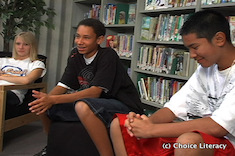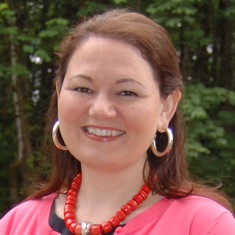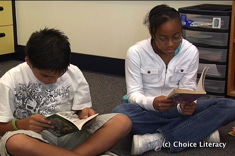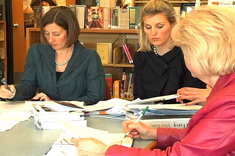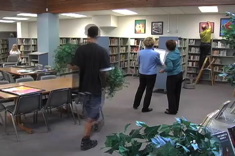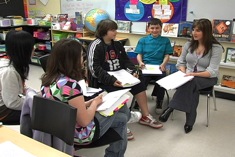I’ve got the best job in the world; I get paid to talk about books and maps and history and philosophy and yes, even grammar and punctuation. Now, lest you write me off as one of those jerks who claim to have found a way to “get paid doing what I love,” let me reveal to you the downside of my job. I have to talk about books and maps and history and philosophy and yes, even grammar and punctuation, with a group of people who divide their time between texting, eating, and being/trying to appear bored.
That’s right — I’m a high school English and social studies teacher. As such, I spend a lot of time thinking about how I can share my thoughts, ideas, and passion for learning with my students. What can I do to help them in the process of growing as readers and writers and thinkers? How do I get them to buy in? I want my students to read and to write . . . even just a little. I don’t even ask them to like it: just to do it. How do I show kids what it is to be a real reader? With this in mind, I kicked off the school year by introducing my students to Daniel Pennac’s “Reader’s Bill of Rights” from his book Better than Life. Pennac’s reader’s rights include:
1. The right to not read
2. The right to skip pages
3. The right to not finish
4. The right to reread
5. The right to read anything
6. The right to escapism
7. The right to read anywhere
8. The right to browse
9. The right to read out loud
10. The right to not defend your tastes
(Excerpt from Better than Life by Daniel Pennac)
I asked the students to partner with me to write our own bill of rights. I’d like to share with you some of the rights we thought Daniel Pennac should have included:
Readers have the right to…
…not like everything they read. Reading a book is like entering into a new relationship – some work out, some don’t.
… talk about books they didn’t like.
… not find a deeper meaning in everything they read.
… read about books. Pour over book reviews; peruse dust jackets; read books about books and the people who collect them: all of it is fascinating.
… read books NOT on their reading level. Read everything: young adult novels, children’s literature, cookbooks, how-to manuals, bestselling mysteries, biographies, philosophical texts, and scholarly physics journals that make you feel small. IT ALL COUNTS.
… get in a rut. Get stuck in a vampire/sci-fi phase that lasts about 4 years…
… surprise themselves. Started reading biographies and poetry or even if you have been a self-proclaimed skeptic of both genres.
… keep lists of books you want to read, and then ignore them.
… check out more books from the library at one time than you could ever possibly read in 21 days.
… buy books that you’ll never read, or won’t get to for a few years.
… own multiple copies of the same title.

